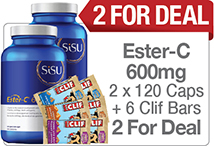S.A.D. Seasonal Affected Disorder
Updated Oct. 13th, 2017
If you typically feel the winter blahs, or the February blues, then you might be experiencing SAD, or seasonal affected disorder. Seasonal affected disorder (SAD) is a type of depression that affects people in the winter months because of dark and damp weather. It is more common in women than men and in the northern latitudes than southern latitudes.
Depression is a common medical problem that affects millions of people each year. It is a signal that one’s coping mechanisms have been overwhelmed. The seasonal depression called SAD also affects millions of people although it is often misdiagnosed as simple depression.
Symptoms of SAD are low energy, anxiety attacks, weight gain, sleeping too much, decreased libido all of which typically begin in the late fall and alleviate in the spring.
A few mechanisms are thought to cause SAD. Vitamin levels decrease during the winter months because of lack of fresh produce and lack of sunlight which generally has an negative impact on a person's energy level. Day and night cycles change as winter approaches and there is less daylight. This change in our evolutionary past was a signal for our body’s to prepare for winter, decrease our activity and save our energy. Today, however, the need for this adaptation is minimal. Individuals with SAD have higher levels of melatonin, the brain chemical that induces sleep.
NATURAL MOOD ELEVATING SUPPLEMENTS___________________________
St. John’s wort is one of the top selling natural health products. It is also one of the most well studied plants, with many scientific trials attesting to its efficacy as a natural anti-depressant. Its medicinal value has been attributed to a substance called hypericin.
As an anti-depressant hypericin increases the amount of neurotransmitters in the brain, including serotonin. Serotonin is involved in the brain’s response of well-being, hunger and many other sensations. Trials of St. John’s wort versus prescription antidepressants have given clinical backing to the use of this herb for mild top moderate depression without many of the side effects of conventional medications.
5HTP (5-Hydroroxy tryptophan) is a precursor to the neurotransmitter serotonin. Serotonin regulates mood, behaviour, appetite, dilation of blood vessels and many other body processes. 5-HTP has been favourably compared to tricyclic antidepressants and Prozac for its ability to alleviate depression. Serotonin is released in response to fullness and regulates appetite. Deficiency of serotonin can also lead to overeating and obesity. This also accounts for the fact that when we are under stress our appetite tends to change.
5-HTP is recommended by natural health practitioners for insomnia, jet lag, aging, cancer, frequent colds and flus, PMS, memory loss, arteriosclerosis, stroke, Alzheimer’s disease, headaches, migraines, obesity, fibromyalgia, stress, anxiety and depression.
Ginkgo increases circulation by making the blood flow freely, thus enhancing oxygen delivery to and waste removal from cells. Gingko may also improve the communication between brain and nerve cells which is part of the reason why it can make a difference for the ability to concentrate. Gingko is used by natural health practitioners for a variety of conditions including: senile dementia, Alzheimer’s disease, macular degeneration, tinnitus (ringing in the ears), vertigo, impotence, cold hands and feet and intermittent claudication (poor circulation in the legs). Students have also used it as a memory enhancer.
________________________________________________________________________
Conventional treatment of SAD includes the use of antidepressant medications. There are several types of this medication but all of them work by altering the way the brain uses the neurochemicals serotonin, dopamine and norepinephrine. Side effects vary depending on the type of medications that are used. Conventional treatment can also involve counselling.
Light therapy is helpful for SAD because full spectrum lighting regulates the production of melatonin. Melatonin regulates daily patterns. Full spectrum light bulbs and light boxes are available.
Lifestyle changes to help with SAD include regular outdoor exercise, proper rest and undertaking enjoyable mental activities. Start a hobby that you enjoy. Learn to deal with stress in positive ways.
Dietary treatment of SAD begins by an assessment of nutritional status and toxin levels. Deficiencies of nutrients can alter the functioning of the nervous system.
It's important, then to ensure that your are getting enough of the nutrients crucial for healthy brain and nerve function - especially since nutrient levels decline in the winter because people generally eat less vegetables in the winter. Take a complete B complex formula. They are known as the stress vitamins and can help both your brain and your adrenal glands (the stress glands) function effectively. B vitamins are also needed to optimize neurotransmitter production - in particular vitamin B6.
Also ensure that you are supporting your adrenal glands. The adrenal glands produce hormones that enable our bodies to fight stress effectively. The herbs licorice, Siberian ginseng, ashwaghanda and the amino acids tyrosine and phenylalanine help to optimize the functioning of the adrenal glands.
Whenever anyone is depressed it is important to maintain stable blood sugar levels.
Balancing blood sugar is important because fluctuations can aggravate SAD. Avoid caffeinated drinks, alcohol, tobacco, saturated fats, artificial sweeteners, wheat, refined flour products, refined sugar products and any foods you are sensitive to. Eat a whole foods diet including fresh fruits and vegetables, whole grains (especially oats) and nutritional yeast. Include foods that are high in tryptophan, the precursor to serotonin. They are ocean going fish, eggs, nuts and wheat germ























Great article! I find that seasonal affective disorder is widely common but sometimes it can feel overwhelming with the information out there. I definitely can find myself feeling in a slump certain times of the year and try to remember to take Vitamin D and get enough sleep but sometimes you are just not in the mood to workout or do not know what to eat or how to feed yourself with the proper nutrients to ease these things so it is always great to read more about it and see people talking about this :)
Hello,
Indeed, it is an important topic to discuss because it affects a lot of people. But by maintaining a healthy lifestyle, these feelings don't have to take the forefront or be as overwhelming. Vitamin D, exercise, socializing, getting fresh air, eating well, maintaining a sleep schedule and even a UV lamp are all great ways to support SAD. Here's some more information about vitamin D and why it's so critical:
https://www.nationalnutrition.ca/articles/supplements/vitamin-d/
Have a healthy day!